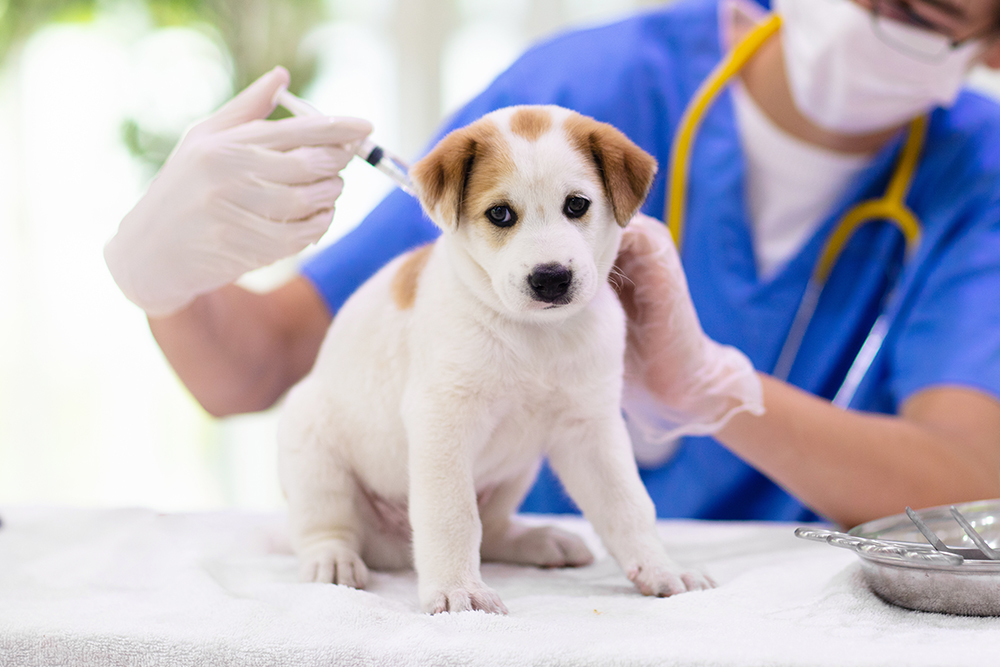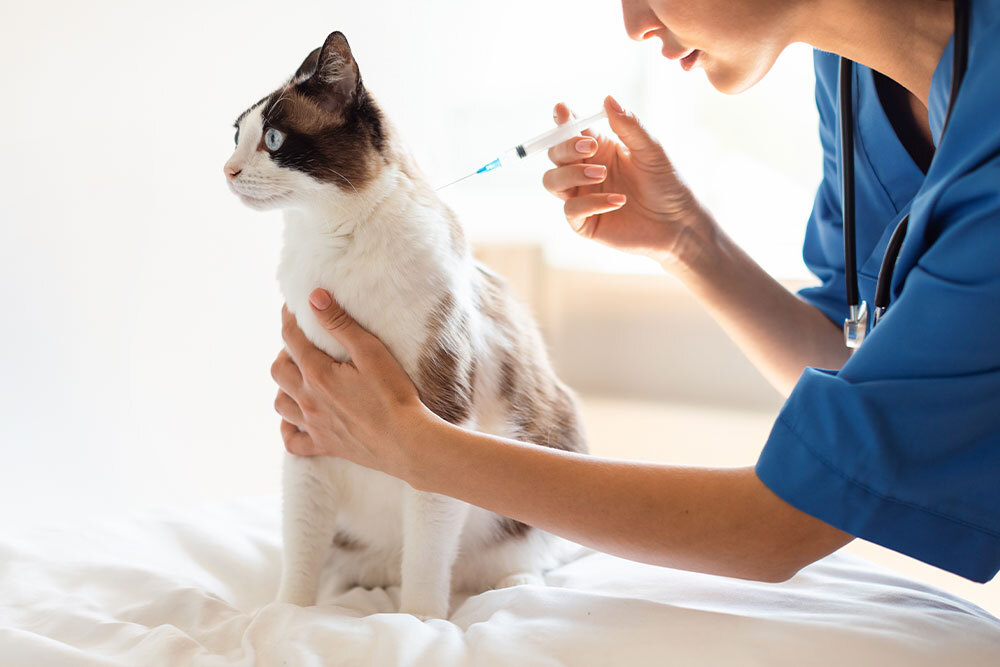Vaccinations are one of the most effective tools we have to protect our pets—and the communities they live in—from dangerous infectious diseases. At WesVet Animal Hospital in Brentwood, Tennessee, we’re committed to helping pet owners understand the role vaccines play in lifelong wellness.
In this comprehensive guide, we’ll walk you through:
- How vaccines protect your pet
- The difference between core and non-core vaccines
- What to expect at each life stage
- Why regular vaccination schedules are essential for long-term health
Let’s explore how to keep your pet protected at every stage of their journey.
Understanding How Pet Vaccinations Work
Vaccines work by stimulating the immune system to recognize and fight off specific infectious agents, such as viruses and bacteria. They don’t just protect your individual pet—they also help prevent disease outbreaks within the broader pet and human community.
This is particularly important for zoonotic diseases, which can be transmitted between animals and people. Rabies is one example, but others—like Leptospirosis or certain strains of Influenza—pose risks as well.
For a broad overview of pet vaccination basics, check out Vaccinations for Pet Owners – AVMA.
Why Vaccines Matter: Prevention Over Cure
Vaccines prevent potentially fatal illnesses, reduce emergency vet visits, and limit disease transmission to other animals and humans. From a cost and care perspective, prevention is far more effective than treatment. Vaccinated pets are also better equipped to fight off infections and stay protected during emergencies, travel, or boarding situations.
Core Vaccines: The Foundation of Pet Health
Core vaccines are considered essential for all pets, regardless of their environment or lifestyle. They protect against widespread and highly contagious diseases that carry significant health risks.
Core Vaccines for Dogs
- Rabies: Fatal and zoonotic—required by law in most regions.
- Canine Parvovirus: A highly contagious virus that causes severe gastrointestinal illness. Read more about Canine Parvovirus.
- Canine Distemper: A virus affecting the respiratory, gastrointestinal, and nervous systems. Learn more about Canine Distemper.
- Canine Hepatitis (Adenovirus-1): Affects the liver, kidneys, and eyes; can be deadly if unvaccinated.
Core Vaccines for Cats
- Rabies: Legally required in most states to prevent transmission to humans.
- Feline Herpesvirus (FHV-1): One of the leading causes of feline upper respiratory infections. More from ASPCA Pro.
- Feline Calicivirus (FCV): Another common respiratory virus.
- Feline Panleukopenia: A severe viral infection causing fever, vomiting, and a dangerously suppressed immune system.
For a complete breakdown of core vaccine recommendations, visit AAHA’s Guide to Feline Vaccinations.
Non-Core Vaccines: Protection Based on Lifestyle
Non-core vaccines are recommended based on your pet’s individual risk factors—including their environment, travel habits, exposure to wildlife, and socialization.
Non-Core Vaccines for Dogs
- Leptospirosis: Spread through contaminated water or soil, this zoonotic bacterial disease can cause liver and kidney failure. Learn more about Lepto.
- Bordetella (Kennel Cough): Recommended for dogs that visit grooming salons, daycares, or dog parks. AKC’s guide to Kennel Cough.
- Lyme Disease: Transmitted by ticks, it can cause joint swelling and long-term organ damage. Learn more about Lyme Disease in Dogs.
Non-Core Vaccines for Cats
- Feline Leukemia Virus (FeLV): Particularly important for outdoor cats or multi-cat households. This virus weakens the immune system and can lead to cancer.
- Chlamydia felis: A bacterial infection that causes conjunctivitis and respiratory symptoms.
Vaccination by Life Stage: What Your Pet Needs and When
Puppies and Kittens: Building Immunity from the Start
Vaccinations should begin as early as 6–8 weeks of age, with booster shots every 3–4 weeks until around 16 weeks. Young pets are most vulnerable during this stage, and early immunity is essential.
Typical Schedule:
- 6–8 Weeks: Initial doses for core diseases like Distemper, Parvovirus, and Panleukopenia
- 12 Weeks: Booster shots for the same diseases
- 16 Weeks: Final boosters + first Rabies vaccine
- FeLV: May be added for kittens based on lifestyle risk
For more guidance on developmental stages, explore:
- The Journey of a Lifetime: Understanding Your Dog’s Life Stages
- A Journey Through the Ages: Understanding Your Cat’s Life Stages
Adult Pets: Maintaining Long-Term Protection
Immunity from early vaccines doesn’t last forever. Adult pets need regular boosters to maintain effective protection:
- Core vaccines are typically boosted every 1–3 years, depending on your vet’s protocol and vaccine type.
- Non-core vaccines (like Bordetella or Lepto) may be given annually based on lifestyle and exposure.
Ongoing assessments help ensure your pet’s vaccine schedule is aligned with their needs. Learn why regular vet visits are essential.
WesVet Animal Hospital: Your Partner in Preventive Care
At WesVet Animal Hospital, we believe in proactive, personalized veterinary care. When it comes to vaccinations, our team works with you to:
- Determine which vaccines your pet truly needs
- Keep you informed about updated guidelines and local disease risks
- Provide safe, low-stress vaccine appointments
- Monitor for any post-vaccine reactions or adjustments needed
Have questions? Want to confirm your pet’s current vaccine schedule? Contact us today—we’re here to help.
Vaccines Are More Than a Requirement—They’re a Lifeline
Whether your pet is a playful puppy, a curious kitten, or a seasoned senior, vaccinations are key to giving them a long, healthy life. Staying on top of routine vaccines also contributes to the health and safety of every pet (and person) in your household and community.
At WesVet Animal Hospital, we’re honored to be part of your pet’s wellness journey—and we’re here to support you at every life stage.








Leave A Comment